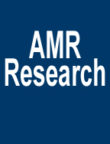
Home » Driving Supply Chain Transformation Through the Chief Supply Chain Officer
Driving Supply Chain Transformation Through the Chief Supply Chain Officer

March 25, 2009
AMR Research's ongoing studies, focused on understanding the key attributes of supply chain organizational design that drive improved performance as well as the type of training required for effective supply chain transformation, have identified the importance and impact of the role of the chief supply chain officer (CSCO). While the CSCO is critical to speeding up the complex transformation most organizations require when moving from functional or internal expertise, few companies have established the right role or the right reporting responsibility, according to our survey results.
In fact, in response to a series of questions focused on current supply chain leadership that were posed to about 90 organizations, only 38% of respondents identified a chief supply chain officer (CSCO) or equivalent executive vice president as their highest ranking official. Furthermore, of the 38% that stated they had a CSCO or equivalent, only 33% of them report directly to the CEO. This means only about 12.5% of the organizations we surveyed have a CSCO that reports directly to the CEO.
Top 25 organizations have broader responsibility and leaders with larger titles: Supply chain leaders from companies on AMR Research's Supply Chain Top 25 have broader spans of control, more global responsibility, and are more actively involved in new product design and launch than their peers. This requires executives with a broader perspective, ones that can effectively balance the endless interdependent challenges between key process areas.
Our interviews with top supply chain performers spoke of their leaders as having "broad, singular responsibility," which means a legitimate seat at the table with C-level teams to drive business strategy. These leaders are able to effectively manage between direct and matrixed management. This is especially important, given the number of areas a business is impacted by the decisions and priorities of the supply chain organization. The political acumen necessary to successfully navigate the deeply held views of an organization's heritage means the difference between meeting business objectives or being mired in futility.
The key attributes of chief supply chain officers: Consider the following qualities of successful CSCOs:
1. Pushes synergies amongst competing interests
2. Translates the strategic view for a variety of social, legal, and trade issues
3. Sells the value proposition of what a broadly integrated, supply chain organization can accomplish
4. Exhibits strength in both technical and relationship responsibilities
Additionally, IBM recently published "The Smarter Supply Chain of the Future," a study that highlights the role the CSCO must play in order to accomplish the following:
1. Continually balance, optimize, and orchestrate global resources
2. Act as the ultimate optimizer of the organization
3. Exhibit negotiation skills, stakeholder management skills, supply chain strategy and execution, and market knowledge
4. Take on the functions of the previous CPO and COO, along with bridging the optimization gap of sales and marketing and finance, aligned with supply, operations, and logistics
Maturity drives better performance and higher level supply chain responsibility: A positive correlation between organizational maturity and supply chain performance exists, our research found. The longer a company has a formal supply chain organization, the better its performance.
Not surprisingly, the older the supply chain organization, the greater the level of responsibility the supply chain leader holds. Additionally, the relationship between organizational age and performance was non-linear. A minimum residency of organizational time and experience was required, however, before a step change in performance was witnessed.
Deconstructing the specific findings of the design, leadership, and approach of older supply chain organizations can help younger ones mature more rapidly. Although there's a good deal of evidence that reaching maturity has historically taken about 15 years, establishing the CSCO role and giving it the right responsibility, performance framework, and risk factors will speed an organization's progress. Only a strong supply chain leader can create an environment where the business can make the case for the supply chain organization's value in revenue and margin generation as well as avoid the pitfalls of solely focusing on internal efficiency or cost reduction.
Although it could be argued an official CSCO role isn't critical, it's difficult to separate out the role requirements from the importance of leading the transformational efforts. Most companies will need a C-level role to drive the transformation. As always, I look forward to your ideas and feedback.
AMR Research
RELATED CONTENT
RELATED VIDEOS
Related Directories
Subscribe to our Daily Newsletter!
Timely, incisive articles delivered directly to your inbox.
Popular Stories

2024 Supply Chain Management Resource Guide: There's Only One Way Off a Burning Platform
VIEW THE LATEST ISSUECase Studies
-
Recycled Tagging Fasteners: Small Changes Make a Big Impact
-

Enhancing High-Value Electronics Shipment Security with Tive's Real-Time Tracking
-

Moving Robots Site-to-Site
-
JLL Finds Perfect Warehouse Location, Leading to $15M Grant for Startup
-
Robots Speed Fulfillment to Help Apparel Company Scale for Growth



